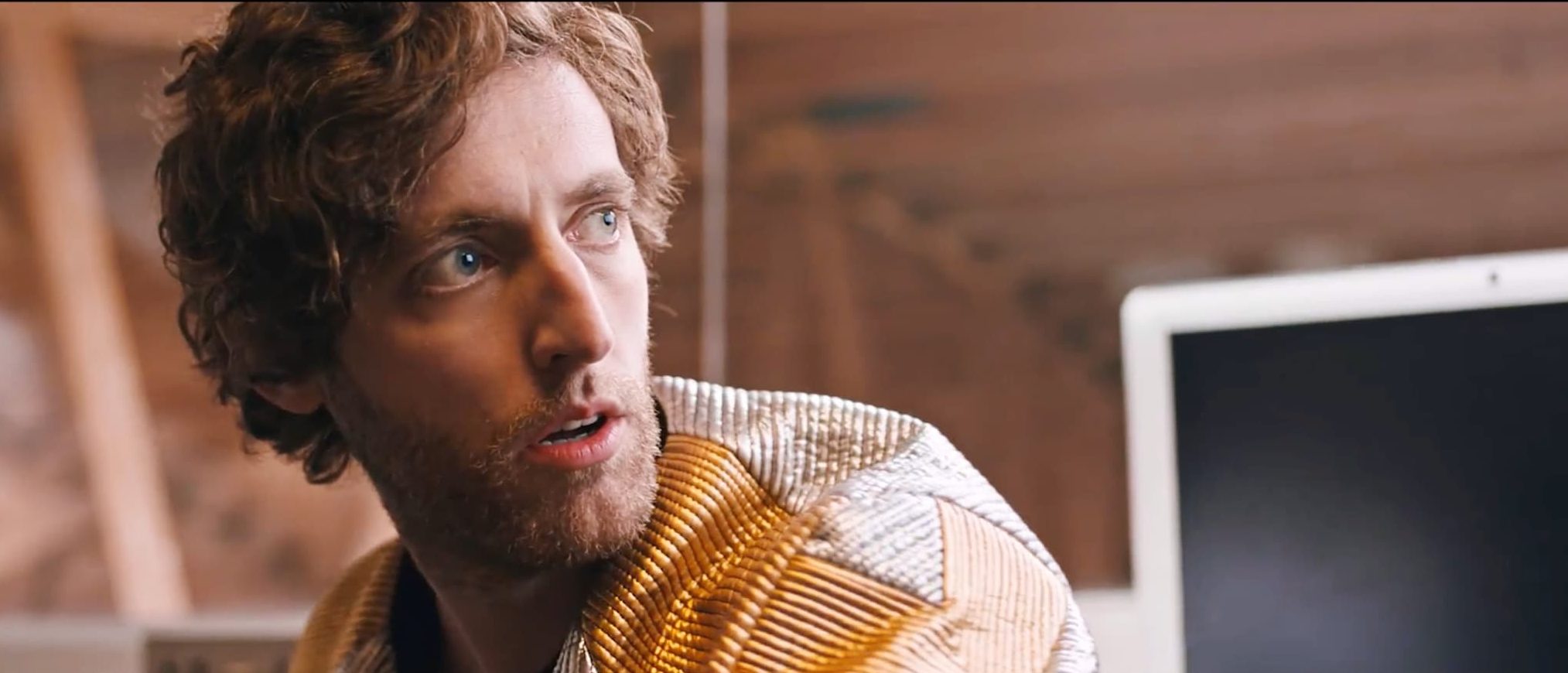In 1921, before there were Talkies, Arthur Blanchard invented a machine to create plots for big-screen pictures. Thirty years later, B-movie Hollywood director Edward Ludwig believed the time was soon when computers would do the screenwriting. Is such a thing possible now? Not exactly, though there’s a new AI that probably could replace Michael Bay and his incoherent, big-budget Hal-Needham-in-space crap. Bay’s someone who needs to be technologically unemployed.
In an Ars Technica article, Annalee Newitz writes about “Sunspring,” a short sci-fi film about a futuristic love triangle that was wholly written by a neural network named Benjamin, the brainchild of NYU AI researcher Ross Goodwin. The resulting work is odd and spirited, an offbeat and stilted regurgitation of current sci-fi tropes but with something of an eccentric auteur’s touch and the Dada poet’s pen. In its own way, it’s compelling.
Newitz writes of her reporting on the film: “As I was talking to [director Oscar] Sharp and Goodwin, I noticed that all of us slipped between referring to Benjamin as ‘he’ and ‘it.'” (You can watch the movie if you go to the article.) An excerpt:
Knowing that an AI wrote Sunspring makes the movie more fun to watch, especially once you know how the cast and crew put it together. Director Oscar Sharp made the movie for Sci-Fi London, an annual film festival that includes the 48-Hour Film Challenge, where contestants are given a set of prompts (mostly props and lines) that have to appear in a movie they make over the next two days. Sharp’s longtime collaborator, Ross Goodwin, is an AI researcher at New York University, and he supplied the movie’s AI writer, initially called Jetson. As the cast gathered around a tiny printer, Benjamin spat out the screenplay, complete with almost impossible stage directions like “He is standing in the stars and sitting on the floor.” Then Sharp randomly assigned roles to the actors in the room. “As soon as we had a read-through, everyone around the table was laughing their heads off with delight,” Sharp told Ars. The actors interpreted the lines as they read, adding tone and body language, and the results are what you see in the movie. Somehow, a slightly garbled series of sentences became a tale of romance and murder, set in a dark future world. It even has its own musical interlude (performed by Andrew and Tiger), with a pop song Benjamin composed after learning from a corpus of 30,000 other pop songs.
Building Benjamin
When Sharp was in film school at NYU, he made a discovery that changed the course of his career. “I liked hanging out with technologists in NYU’s Interactive Telecommunications Program more than other filmmakers,” he confessed. That’s how he met Goodwin, a former ghost writer who just earned a master’s degree from NYU while studying natural language processing and neural networks. Speaking by phone from New York, the two recalled how they were both obsessed with figuring out how to make machines generate original pieces of writing. For years, Sharp wanted to create a movie out of random parts, even going so far as to write a play out of snippets of text chosen by dice rolls. Goodwin, who honed his machine-assisted authoring skills while ghost writing letters for corporate clients, had been using Markov chains to write poetry. As they got to know each other at NYU, Sharp told Goodwin about his dream of collaborating with an AI on a screenplay. Over a year and many algorithms later, Goodwin built an AI that could.•

